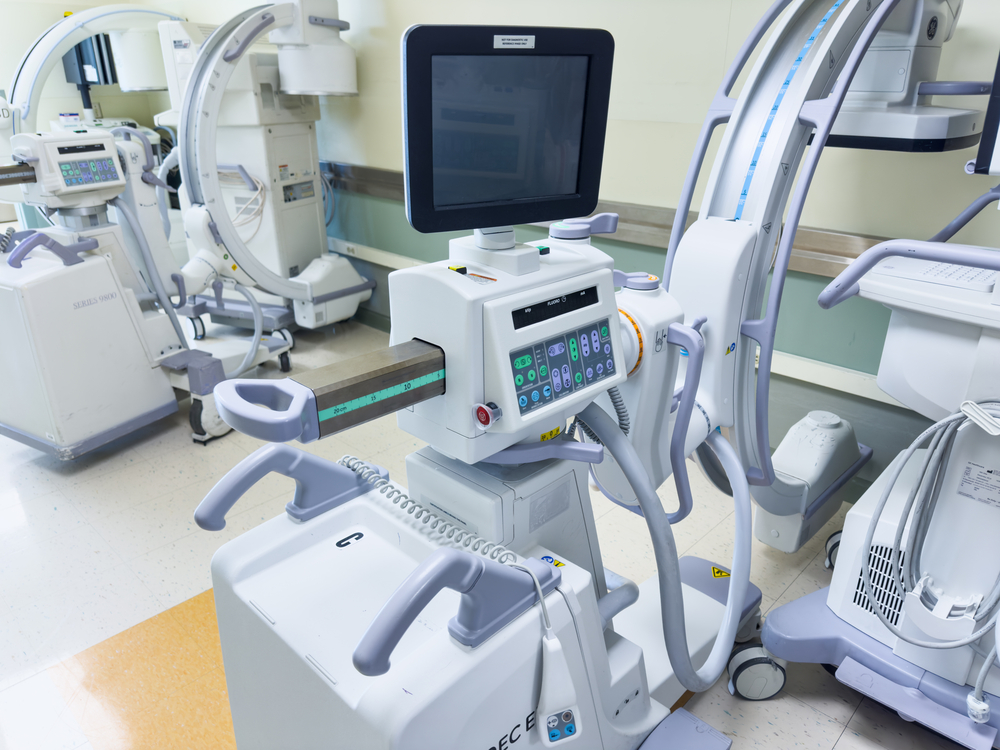Get a Quote
Still Need Help?
Call Us:
916-339-3676
Drop-off Address:
3921 Pell Circle
Sacramento, CA 95838
Get Directions
Medical Equipment Recycling Service
The profound impact of medicine and contemporary healthcare on humanity cannot be overstated. They have revolutionized the way we live by preserving lives, prolonging them, fostering wellness, and preventing future illnesses. Throughout centuries, the field of medicine has continuously elevated human well-being. Advancements in modern medicine have given us vaccines, antibiotics, and improved sanitation practices.
Combining technology with medical innovation has accelerated progress. Technology aids in understanding the inner workings of our bodies, while medications help prolong the lives of people with chronic conditions. These breakthroughs have a wide-reaching impact, influencing the lives of nearly every individual on the planet.
Remarkable advancements in healthcare technology, including organ transplants, non-invasive imaging methods like x-rays, CT scans, MRIs, and ultrasounds, portable defibrillators, life-saving respirators, lab-grown human cells, and mind-controlled prosthetic limbs, represent essential tools for doctors and researchers as they conduct extensive research to tackle human health challenges and achieve their objectives.
See the other Industries We Serve.
Medical Technology and Healthcare Devices
Hospitals, clinics, labs, nursing homes, and other medical facilities heavily rely on technology and medical electronics to deliver patient care. Modern equipment is mostly preferred due to its high accuracy and efficiency. The increased use of automated devices comes with a growing need for proper recycling.
Recycling medical electronics requires specialized handling due to the hazardous materials and sensitive data they may contain. Disposing of them in landfills can pose a risk to data privacy and the environment. Moreover, state or federal laws require detailed documentation of recycled devices, including their serial numbers and certificates of destruction.
The rapid evolution of electronic devices results in a more complicated waste disposal process. Biomedical equipment such as lab analyzers and EKG monitors contain hazardous substances like mercury, lead, chlorinated plastics, and brominated flame retardants. Improper disposal of these items can cause public health issues and may endanger the environment.
Healthcare institutions must manage electronic equipment in a way that controls costs, protects data, and complies with regulations set by various government bodies.
Ensuring the Security of Medical Data is Paramount.
Data sensitivity is important for every organization, but it is particularly crucial within the medical sector. Healthcare providers are faced with strict regulations with regards to patient data protection. Healthcare providers must secure electronic protected health information (E-PHI), patient identities, and payment details, all while staying compliant with federal rules.
— Health Insurance Portability and Accountability Act (HIPAA)
— Health Information Technology for Economic and Clinical Health Act (HITECH)
— Sarbanes-Oxley Act
— Gramm-Leach-Bliley Act
— FACTA Disposal Rule
— Patriot Act of 2002
— PCI Data Security Standard
— Identity Theft and Assumption Deterrence Act
The constant advancements in technology and the widespread use of devices transmitting electronic protected health information (E-PHI) over networks have made protecting patient data a continuous challenge for healthcare providers. Cybercriminals target hospitals persistently, aiming to misuse personal information for illegal purposes. For instance, in 2014, Chinese hackers breached hospital systems, stealing 4.5 million patient records for use in medical and financial fraud. Additionally, a Mayo Clinic study, as reported by Bloomberg, uncovered significant vulnerabilities in various medical devices, making them prone to hacking, data breaches, and unauthorized data access.
Despite the evident risks, only a small fraction of medical facilities and healthcare organizations have expertise in IT recycling and data destruction. Improper handling of electronic waste (e-waste) and medical data could result in significant penalties for non-compliance with regulations such as HIPAA and other laws designed to protect sensitive information.
Collaborating with certified IT disposition companies capable of responsibly recycling medical equipment and securely eradicating sensitive data is crucial.
Selecting the Right Medical Equipment Recycling Company
Choosing a reputable data destruction and electronic recycling company is essential, particularly when dealing with complex medical devices. It is important that these companies have R2v3 certification, to ensure they handle medical equipment properly. Modern Waste Solutions offers secure and environmentally friendly disposal services for medical e-waste. Our company is certified with ISO 14001, ISO 45001, ISO 9001, and R2v3, and we comply with various industry standards like HIPAA and PCI DSS. With Modern Waste Solutions, you can trust that medical equipment recycling and disposal are conducted safely, securely, and up to industry standards, providing peace of mind for healthcare organizations. We also provide personalized assistance throughout the process and furnish detailed Certificate of Destruction reports. Contact us to learn more about medical equipment recycling and decommissioning.

